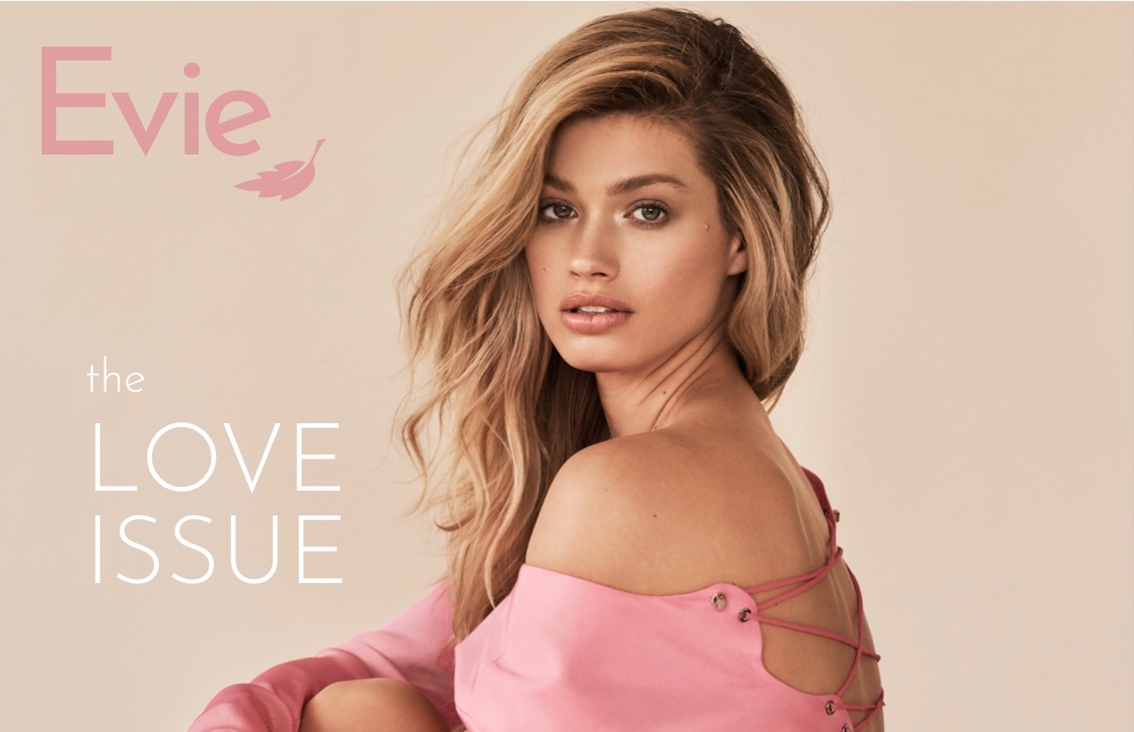Feminism
Women Needed a Magazine that Doesn't Lie to Them. So I Started One
Women’s publications have tried to convince women they can be just like men, instead of celebrating femininity and what makes women wonderfully unique.

As founder and editor-in-chief of a new web site aimed at women, I often get asked: Why do we need yet another publication in this already crowded media niche? It’s simple: Until now, all of the major players have had one common characteristic. Can you guess what it is?
When Bryan Goldberg announced in a blog post that he had raised $6.5 million to start Bustle.com, a site for women, many competitors weren’t happy. “Isn’t it time for a women’s publication that puts world news and politics alongside beauty tips?” Goldberg wrote. A Jezebel writer, Hazel Cills, responded that such sites already exist. And she was right—perhaps more so than Cills knew: All the publications mentioned in her Jezebel article—The Hairpin, The Toast, Bust, Bitch, xoJane, Autostraddle, Refinery29, AfterEllen and Jezebel itself—push a liberal, feminist message. The same is true of older outlets such as Cosmopolitan, Elle, Glamour and Allure. Go ahead and find me a single successful, mainstream women’s lifestyle-and-culture publication that doesn’t regularly exhibit a bias against conservative points of view.
There’s been a shift in recent years in the kind of content these publications push. Do most women you know really want to grow hairy legs? No. Do they really want to forgo feminine hygiene, because “a real man loves his woman any time of the month”? No. Do they like cheering for male-bodied individuals who dominate women’s sports—like when Fallon Fox crushed a woman’s skull in MMA? Definitely not.
For decades, magazines have sold women countless lies about sex, emotional fulfillment and health issues—usually under the guise of “empowerment.” They prey on women’s insecurities by normalizing unhealthy extremes (first it was borderline anorexia, now it’s obesity). They encourage casual sex and lie to readers about its emotional ramifications. They tell women they’ll be unhappy with a husband and kids but fulfilled working for a male boss at a big corporation. They laud celebrities who aren’t good role models, turned Hillary Clinton into an object of worship, and attack or ignore women who don’t share their views.
Millions of women—especially here in the United States, where I live and work—have been left out. They’re tired of having to go to trashy publications just to find useful reads on health and beauty. For decades, women’s publications have tried to convince women they can be just like men, instead of celebrating femininity and what makes women wonderfully unique. It was this gap in the market that made me and my colleagues wonder: “What if there were a conservative Cosmo?”
From that question, Evie Magazine was born. She’s an online publication covering health, beauty, fashion, relationships, career and culture. Her mission is to empower, educate and entertain young women with content that celebrates femininity, encourages virtue, and offers a more honest perspective than they get elsewhere. She’s Classier than Cosmo, Sexier than Refinery29, and Smarter than Bustle. Millennial women are Evie’s audience, but so are the “Gen Z” women born from the mid-1990s onward. (Do men read Evie? Sure they do—even if they might not admit it.)

Is Evie “feminist”? That depends on your definition of feminism. The reality is, modern feminism in its doctrinaire form isn’t popular. Many women realize that, at its core, progressive third-wave feminism can express itself as a form of self-hatred: a rejection of our feminine beauty, unique gifts and the natural role we play in our communities. In effect, it seeks to turn first-rate women into second-rate men. Paradoxically, this movement also is suffused with negative and condescending attitudes toward masculinity, whereas Evie readers love their men, and are thankful for the protection and sacrifice that men often have been called upon to deliver throughout history.
Why has it taken this long for conservative women to create a publication such as Evie? Because conservatives simply aren’t good at pop culture—and to some extent even have become repelled by it. They’re tired of celebrities telling them what to think, of Hollywood gala hosts instructing everyone what ribbons to wear and what politicians to hate. But at the end of the day, we’re all human: We all love to be entertained and inspired. We crave that beautiful song, that hilarious show, that movie that takes us to another world. We can’t reject pop culture entirely because it gives us something we need.
Evie isn’t “fighting the culture war.” That’s not how we see our mission: Conservatives will never win if they imagine themselves as combatants atop defensive battlements, hurling abuse on the mass media. We need to involve ourselves in the creation of pop culture, and thereby help change how that category is defined. That project starts by creating good content, whether in the form of books, films, TV, music or magazines. If politics is downstream from culture, and culture is largely shaped by entertainment, why are most influential conservatives ignoring the latter? We delude ourselves if we think everything we say or do has to go straight to politics.
Facts are great. Truth is paramount. But if all you’re bringing to your audience is abstract ideas, you’re not going to be effective. People seem more emotionally wounded and depressed now than they’ve been in decades. They’re concerned at least as much with feeling good as doing good. They’ve been conditioned to expect instant gratification, thanks in large part to technology. Conservatives need to meet them halfway.
At the same time, there are substantive messages that women need to hear—especially when it comes to sex. Modern men are reaping the “benefits” of sexual liberation because women have bought into the lie that men and women respond the same way to intimacy. Men now can sleep with countless women without emotional attachment or consequences. The joke’s on us. “Liberation” was a genius idea for men, but it’s left women devastated and empty. Here’s an idea: instead of “Simple Tips To Cheat On Your SO And Actually Get Away With It” (an actual 2016 article in Elite Daily), why not “Here’s How to Stay Faithful When the Going Gets Rough”?
Some people won’t like Evie’s advice—such as the hordes of liberal Lancelots on white horses who heroically show up on our social-media feeds to defend women’s right to engage in casual sex with them. Go figure. But at Evie, we never tell anyone how to think. We don’t patronize, and we don’t judge. The advice comes from a place of love, backed by data and rooted in truth. We believe that if you seek truth, you’ll find beauty (the kind that really matters). Women often are told sweet-sounding adages like, “you’re perfect just the way you are!” But those sentiments often aren’t truthful, and discourage self-improvement.
The women of Evie are socially and ethnically diverse. We’re free thinkers, unbeholden to any political doctrine. We’re “conservative” to the extent we generally believe in hard work and refuse to play the victim. But we also believe in having compassion for the less fortunate. We believe in science, not bought-and-paid-for policy propaganda, and that we should be responsible stewards of our planet. We believe we should judge each other by our virtue, not shallow appearances or the color of our skin. We think that selfless love is the most important virtue, especially in our personal relationships; and, when it comes to society as a whole, justice comes in as a close second. We believe in the rule of law and in due process—which means that, no, not every woman should automatically be “believed.”
And yes, we believe women have the power to change the world—in part because the influential hearts and minds of tomorrow will be molded in the homes of today. If that makes us conservative, then I guess we are.






